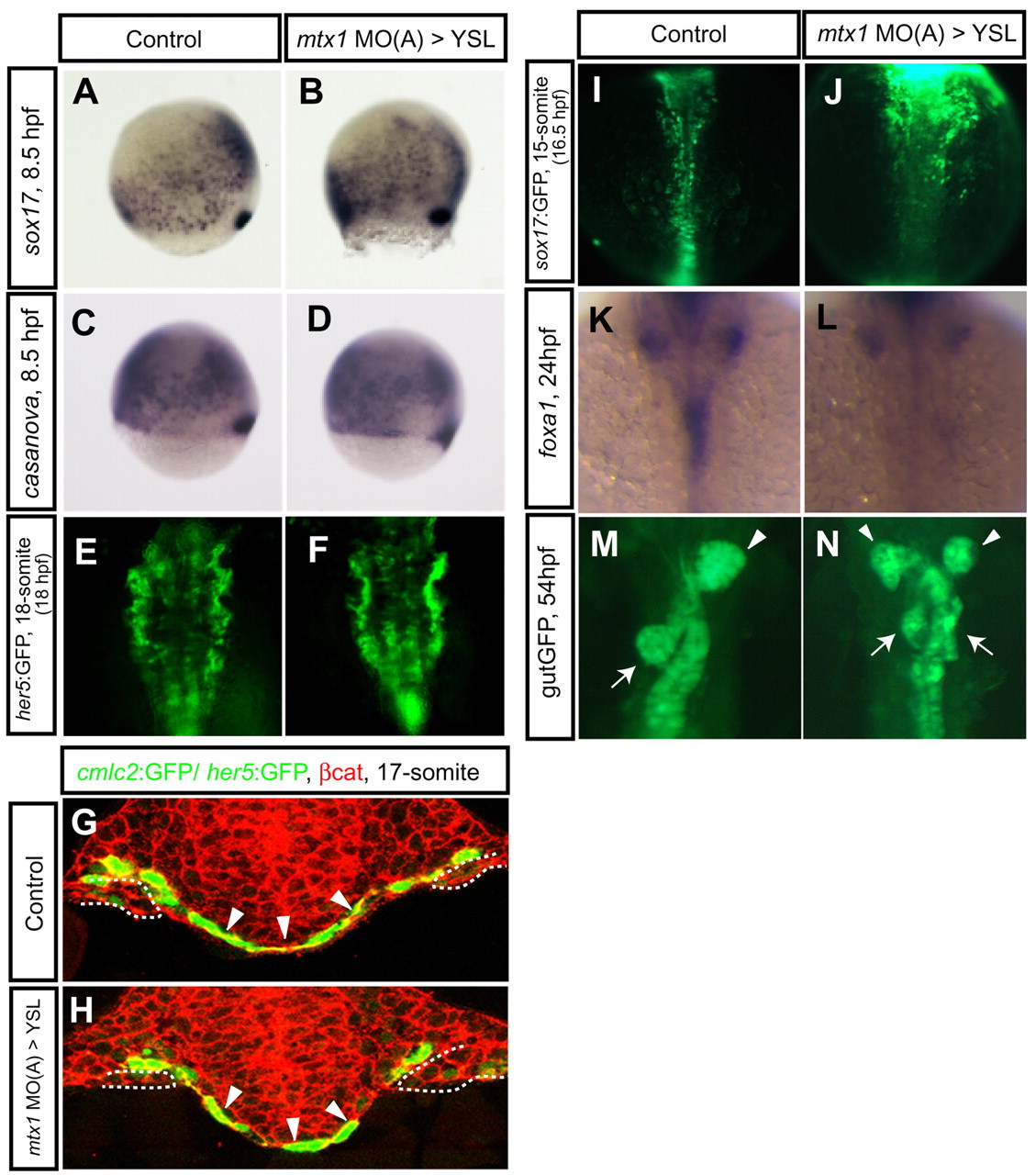Fig. 3 Endoderm development in mtx1 MO-injected embryos. Endoderm differentiation and morphology in wild-type embryos (A,C,E,G,I,K,M) and embryos injected with mtx1 MO(A) into the YSL (B,D,F,H,J,L,N). Expression of early endoderm markers, sox17 (A,B) and casanova/sox32 (C,D), at 80% epiboly (8.5 hpf) did not appear to be affected in mtx1 MO(A)-injected embryos. (E,F) Anterior views of her5:GFP transgenic embryos at the 18-somite stage show unaffected pharyngeal endoderm development. (G,H) The pharyngeal endoderm was also examined in transverse confocal images (dorsal at the top) of Tg(cmlc2:GFP); Tg(her5:GFP)ne2067 embryos counterstained for β-catenin (red). Arrowheads point to the pharyngeal endoderm and dashed lines outline the myocardial cells in the lateral plate mesoderm. (I,J) Dorsal views of the mid-trunk region of sox17:GFP transgenic embryos at the 15-somite stage. Anterior to the top. sox17:GFP-positive endodermal cells in the future foregut region are coalescing toward the midline in control embryos (I), whereas they appeared to be delayed in their migration in mtx1 MO(A)-injected embryos (J). (K,L) Dorsal views of foxa1 expression in the digestive organ-forming region at 24 hpf. By 24 hpf, endodermal cells have already coalesced at the midline and formed a rod in wild-type embryos (K), whereas they remained as a sheet in mtx1 MO(A)-injected embryos (L). (M,N) Ventral views of gutGFP expression at 54 hpf. Approximately 30% of mtx1 MO-injected embryos showed duplicated hepatic (white arrowheads) and pancreatic (white arrows) buds at this stage (N), further illustrating the endoderm morphogenesis defects.
Image
Figure Caption
Figure Data
Acknowledgments
This image is the copyrighted work of the attributed author or publisher, and
ZFIN has permission only to display this image to its users.
Additional permissions should be obtained from the applicable author or publisher of the image.
Full text @ Development

